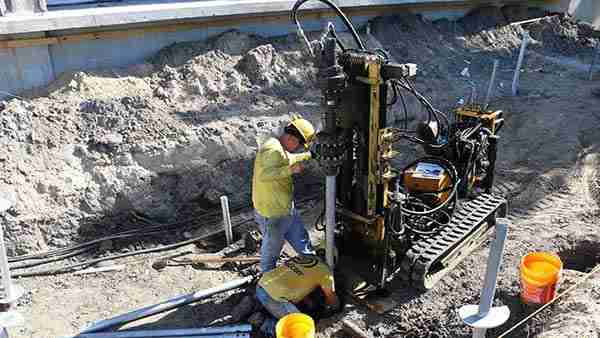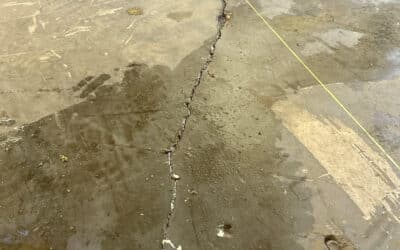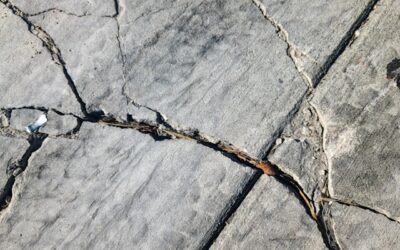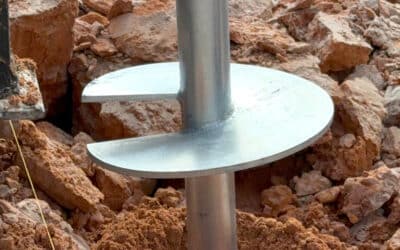Helicon Foundation Experts
Florida's Most Loved and Foundation Repair Company

FREE INSPECTION REQUEST
A free inspection is key to determining the root of your foundation or concrete problem.
Helicon Services
Foundation Repair
Florida’s shifting soils, heavy rains, and groundwater issues often lead to serious foundation problems that threaten your home’s safety and value.
Helicon provides permanent foundation repair solutions engineered specifically for Florida’s conditions, restoring stability and preventing further structural damage for years to come.
Concrete Lifting
Sunken driveways, sidewalks, and pool decks are a common result of Florida’s unstable soils.
Using advanced polyurethane foam injection, Helicon lifts and stabilizes concrete quickly and cleanly, filling voids beneath the surface to restore even, safe walking and driving surfaces with long-lasting results.
Seawall Repair
Waterfront erosion constantly threatens Florida properties, putting seawalls under extreme pressure.
Helicon’s seawall repair method seals cracks, fills voids, and reinforces existing structures to prevent further erosion, protect property lines, and extend the lifespan of your seawall against Florida’s harsh coastal environment.
Soil Stabilization
Weak, sandy, or silty soils across Florida create long-term risks for homes, roadways, and construction sites.
Helicon’s advanced soil stabilization services strengthen the ground, increase load-bearing capacity, and provide permanent support to prevent costly settlement issues on residential and commercial properties.
Sinkhole Repair
Florida’s unique geology makes sinkholes a real threat to homeowners.
Helicon uses proven grouting and soil stabilization techniques to fill underground voids, densify weak soils, and restore ground stability, offering homeowners reliable protection from future sinkhole activity and structural risk.
Pool Foundation Stabilization
Florida’s soft, sandy soils can cause serious settlement issues for swimming pools over time.
Helicon installs engineered helical piers prior to pool construction to stabilize the ground, ensuring your pool is built on a solid foundation that prevents shifting and protects your investment long-term.
Foundation RepairSince 2004!
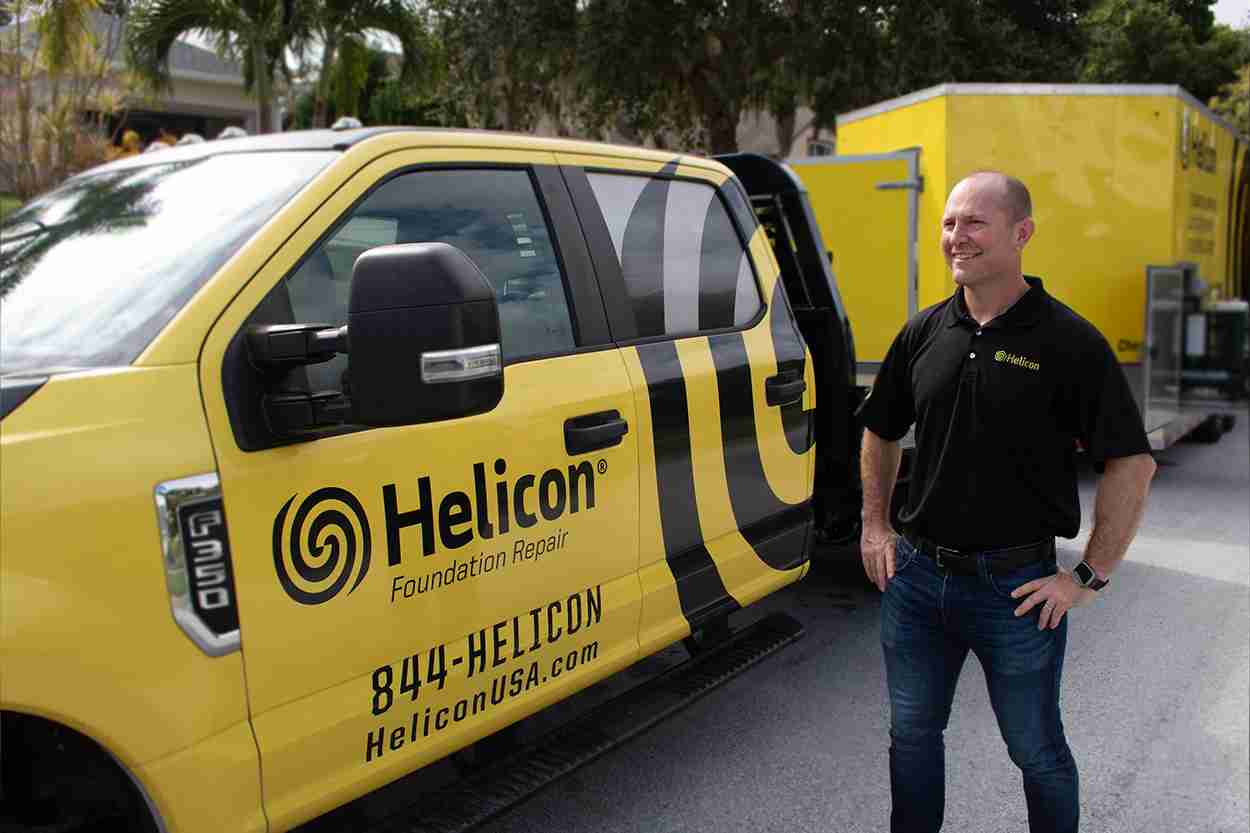
About Helicon
Florida’s Premier Foundation Repair Company for Over Two Decades
By choosing Helicon, you will be provided with rock-solid solutions for all your soil stabilization and foundation issues. Helicon specializes in using the latest technology and the highest quality foundation repair process to repair your foundation, raise your concrete slab, and stabilize your soil or structure.
Helicon is proud to be an A+ rated, BBB-accredited business with 5-star customer review ratings, reflecting our commitment to quality and customer satisfaction.
With our reliable, tried-and-true foundation repair process, you can rest assured that Helicon is the expert you can trust.

3 Reasons Why Homeowners Choose Helicon
01
Our Values
Stay True
Be honest, trustworthy and compassionate partners.
Communicate Clearly
Simplify complex situations and keep clients informed.
Forecast Needs
Prepare ourselves, and our clients, for the future.
Out Perform
Be the best in speed, safety and quality.
02
Dedicated Consultant
We assign you a dedicated representative to help you through the foundation repair process, take the time to communicate details and answer any questions you have along the way.
Your Project Consultant will do their best to simplify the complex situation facing your property.
Whether you have questions about foundation repair methods, timing, or insurance claims, your Project Consultant is dedicated to providing you superior service.
03
Satisfaction Guaranteed
Since 2004, we strive to exceed expectations every step of the way. Helicon is 5 Star Rated, A+ Rated BBB Company
We take pride in our customer’s satisfaction and always strive to outperform expectations.
Helicon has a video library stocked with compelling testimonials that detail the ways Helicon delivers on its promises. Click here for Testimonials.
3 Florida Offices to Serve You Better
Tampa Office
Tampa Office Phone:
813-567-1065
Fax: 813-864-4461
Tampa Office Address:
11103 N 46th St, Bldg B
Tampa, FL 33617
Orlando Office
Orlando Office Phone:
321-455-8007
Orlando Office Address:
4260 Church St, Ste 1340
Sanford, FL 32771
Fort Myers Office
Fort Myers Office Phone:
239-451-5360
Fort Myers Office Address:
5011 Luckett Rd. Ste 7
Fort Myers, FL 33905
Our Full Coverage Service Locations
Northwest Florida
Tarpon Springs
New Port Richey
Spring Hill
Ocala
The Villages
Tampa Bay
Tampa
St. Petersburg
Clearwater
Lakeland
Wesley Chapel
Dunedin
Oldsmar
Lutz
Brandon
Riverview
Palm Harbor
Bradenton
Largo
Pinellas Park
Trinity
Osprey
Central Florida
Orlando
Winter Park
Kissimmee
Sanford
St. Cloud
Apopka
Mt. Dora
Altamonte Springs
Deltona
Lake Mary
Davenport
Lake Helen
Winter Garden
Windermere
East Coast Florida
Cocoa Beach
Melbourne
Daytona Beach
Southwest Florida
Sarasota
Ft. Myers
Cape Coral
Naples
Port Charlotte
Venice
Englewood
North Port
Punta Gorda
Boca Grande
Estero
Bonita Springs
North Naples
Marco Island
Manasota Key
Rotonda West
Solana
Golden Gate
See Real Helicon Projects Across Florida
FAQ
We know that you will have many questions about your foundation repair, concrete repair, seawall repair, or commercial project. Here are some answers for you.
Latest From Our Blog
What Is Foundation Repair? Homeowner Guide to Fixes
Contractors identify the damage, figure out the cause, and apply the right fix to restore stability and head off future issues.
Seawall Repair Cost Per Foot: 2026 Price Guide
Seawall repairpricing depends on the extent of the damage and the work you actually need.
What Is the Best Foundation Repair Method for Your Home?
Foundation problems show specific warning signs, stem from different causes, and need repair approaches based on your home’s unique conditions and soil type.
Expert Service
Helicon Foundation Experts provide foundation repair throughout the Tampa, Orlando, and Fort Myers Metro Areas.
Our team is dedicated to providing Florida residents and businesses with foundation, concrete lifting, and soil stabilization solutions. We offer no-obligation estimates for any of our services.







